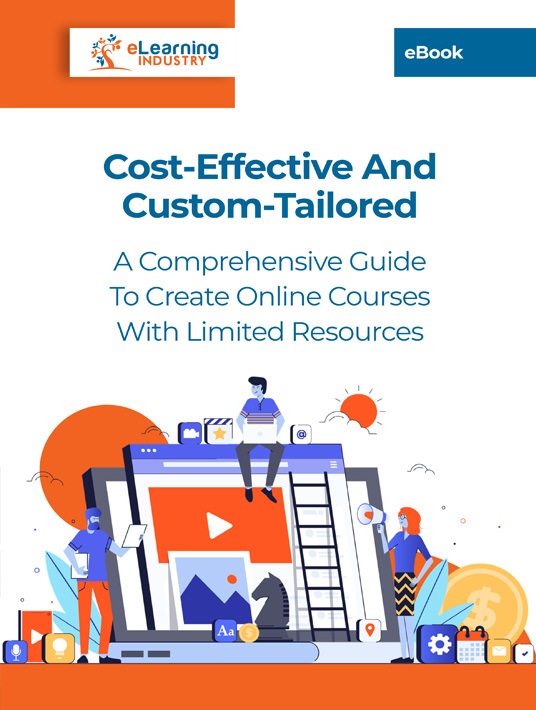Must-Have Talents For eLearning Course Creation
There are two types of stars. First, prodigies with seemingly ethereal talent. They were spotted early, and their in-built skill was polished to perfection. Second, drillers. They chose an activity, or it was chosen for them. Maybe they had a passing interest or slight potential. But they—and their coaching teams—practiced consistently until they achieved superior skill. And once they’re at the top, "natural" and "acquired" skills are barely discernible. How does this apply to the eLearning space, and what gifts do you need to develop good online courses? Here are 5 top talents you need for eLearning course creation and insider secrets to build these vital skills.

1. Creativity
This term has always been difficult to define. Creativity means a million different things to a million different people. In its most basic form, it refers to inventiveness. It’s sometimes described as "originality and imagination." In the eLearning space, it embodies the ability to think outside the box and come up with unusual concepts. These cover all aspects of online course creation. Unexpectedly effective layouts, unexplored assessment formats, non-cliché examples. Also, untrodden online training paths and non-traditional teaching methodologies. These are all creative factors that make your online course stand out. It’s all about delivering pleasant surprises in a meaningful, useful, consistent manner. To build your creative eLearning skills, consider joining networking groups, or attend conferences/webinars to gain a fresh perspective. An organic conversation might ignite the spark and give you that coveted "light bulb" moment.
2. Problem-Solving
At its most basic level, corporate online training is about resolving challenges. They could be product ignorance, newbie inexperience, or seasonal compliance. But while the problems are universal, and the need to fix them is a given, techniques differ. Also, during the process of online course creation itself, challenges come up. For example, how do you train learners with no digital exposure or no affordable internet? How do you renew the licenses of two thousand workers in two days? How do you ensure colleagues across the globe get the same level of training?
A good eLearning course developer has to come up with often untested ways to overcome these online training challenges. Preferably without consuming too much extra time or money. Try to brainstorm potential risks and develop a backup plan to mitigate them. You can also evaluate LMS metrics to identify current areas for improvement, then determine how your newest online course can bridge the gap.
3. Lateral Thinking
Say you’re driving down the street and you encounter a pothole. Not just any pothole. The kind that threatens to swallow your car whole. What are your options? You can turn your car and find an alternate route, except the gridlock behind you won’t allow it. You can pull-over, lock your car and walk to the other side. Or you could do what everyone else does; hoot incessantly and tweet into the ether, asking what’s wrong. Real problem-solvers are lateral thinkers. They branch off in unconventional directions. You can hone this vital talent to create online courses that leave a greater impact by taking risks. For example, trying one new eLearning technique or tool every week to see where it takes you. Think of new ways to apply its features/methodologies to solve current online training issues.
4. An Eye For Aesthetic Appeal
We all say beauty is in the eye of the beholder. But there is some kind of universal standards when it comes to eLearning course creation. Because we all have individual taste, it can be hard to master accepted aesthetic values. One way to practice is to expose yourself to objectively beautiful things. Join a photography site like Flickr or Pixel Bay and just look at the photos. You can also form a habit of targeted search engine use. Once a day, search for eLearning course examples or visit related sites. This will give you an idea of what the masses consider "pretty," and you can tailor your sensibilities accordingly. You can also join social media groups to see what other eLearning professionals are working on and get pointers.
5. Clear Communication
Some of the world’s smartest people remain unrecognized. Why? Because they can’t talk to normal people. They can’t "dumb down" their brilliance to our level, so we see them as outsiders that speak a different language. In online training, communication is essential. You could have all the knowledge in the word and write the most gorgeous code. But if it makes no sense to trainees, you may as well be serenading them in Martian. Communication involves both speaking and listening, so do some empathy training. Dig into non-verbal skills and body language. You should also explore visual, aural, and textual communication, practicing each kind, and learning how to translate between these channels.
eLearning course developers require certain technical skills. Depending on their role, they may need coding languages or subject-based expertise. They may also need Project Management skills, to ensure deadlines are met. But some of the necessary talents are intrinsic. You need creative, lateral thinkers who are good at solving problems. It helps if they have an eye for beauty and are good communicators. These are all abilities that can be sharpened by exposure. Do puzzles to widen your thought patterns and problem-solving skills. Steep yourself in imagery that’s considered conventionally attractive. Finally, engage in brainstorms to exercise your creative muscle.
Get our eBook Cost-Effective And Custom-Tailored: A Comprehensive Guide To Create Online Courses With Limited Resources to learn how to create online courses, regardless of your experience level. It features tips to find the right eLearning authoring tools, invest in the best LMS, and how to create online training on a tight timeline. You’ll also discover the most common errors to avoid and design principles to keep in mind when creating for busy professionals.









